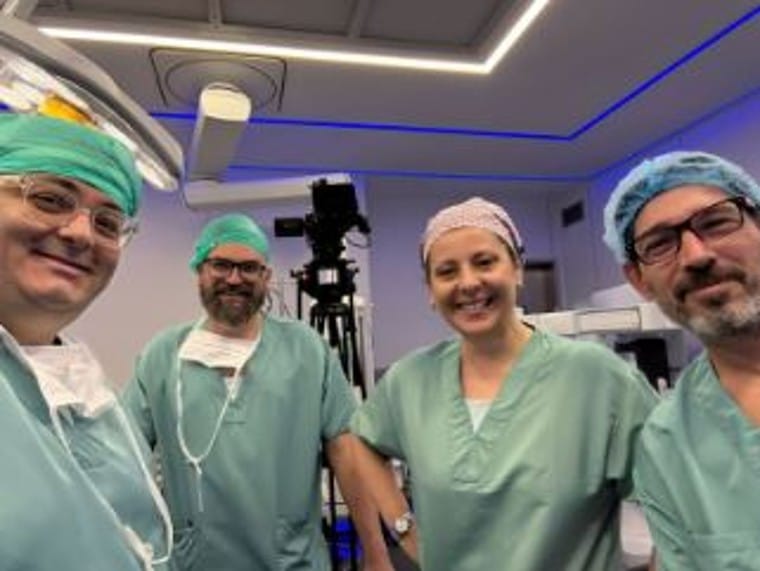Sure! Here’s the translation:
—
Peritoneal carcinomatosis, a rare disease that affects seven people per million inhabitants, accounts for 10% of pelvic cancers. This type of cancer can originate from both digestive and gynecological tumors and presents challenges in its diagnosis and treatment, as its symptoms are generally nonspecific, such as abdominal distension and digestive problems. In Spain, approximately 7,000 new cases are registered each year, with the highest risk for those suffering from ovarian cancer, carrying a 67% probability of developing peritoneal carcinomatosis.
To address this disease, surgeon Domenico Sabia, director of the Peritoneal Cancer Institute at Teknon Medical Center in Barcelona, has implemented innovative techniques that have significantly improved the quality of life and survival rates for patients. Sabia leads a team of specialists preparing for the 15th edition of the PSOGI International Congress on Peritoneal Surface Malignancies, scheduled from October 29 to 31 at the Fira de Barcelona. This event will bring together more than 120 experts in surgical oncology to discuss advancements in the treatment of peritoneal surface malignancies.
Dr. Sabia’s team specializes in two revolutionary approaches: cytoreductive surgery (CRS) combined with HIPEC (hyperthermic intraperitoneal chemotherapy) and aerosolized intraperitoneal chemotherapy (PIPAC). CRS with HIPEC allows surgeons to remove tumors and metastases while administering chemotherapy in the abdomen at high temperatures, potentially eliminating microscopic tumor residues. PIPAC, on the other hand, utilizes a minimally invasive approach to deliver chemotherapy in aerosol form, making it especially useful for patients who are not candidates for more aggressive surgical interventions.
Dr. Lana Bijelic, co-director of the Peritoneal Cancer Institute, emphasizes the importance of personalizing each treatment, which has allowed survival rates to be elevated to 70% in certain cases. The presence of Dr. Paul Sugarbaker, a pioneer in these techniques, is anticipated at the congress, where he will share his vast experience in this field.
The Peritoneal Cancer Institute has established itself as a reference point in Europe for the treatment of peritoneal metastases, caring for 170 patients annually with cutting-edge technology and an innovation-focused approach.
via: MiMub in Spanish
